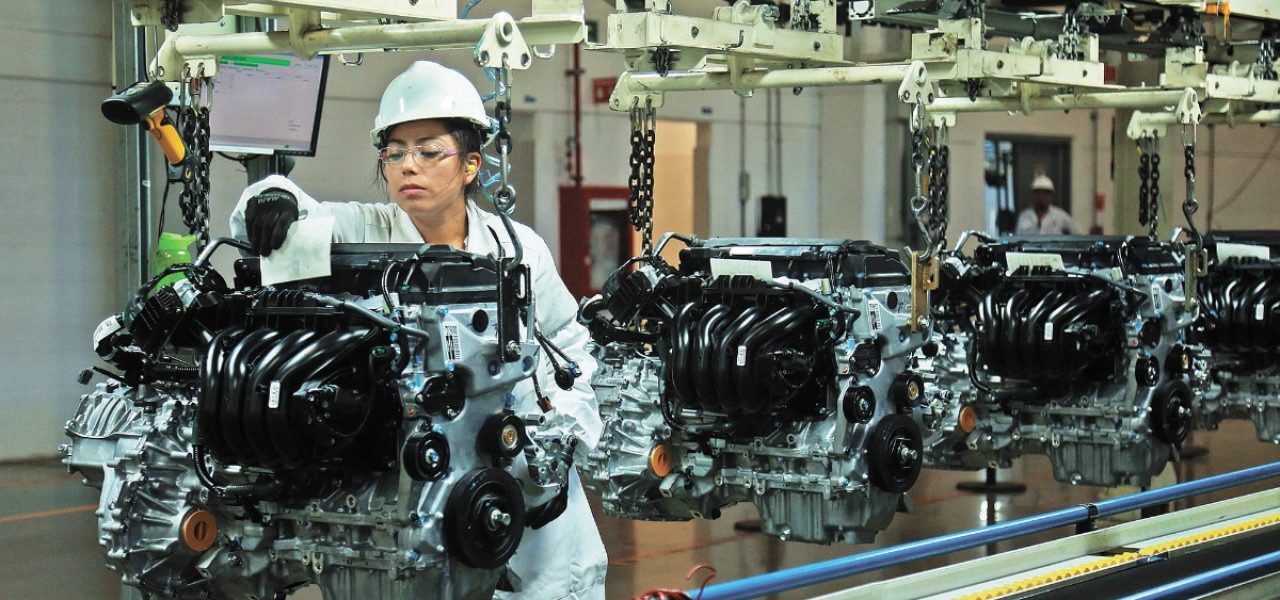“With nearshoring the law of the supply and the demand of talent move at a different pace”, says Martha Hernández, director of Human Capital Consulting at AON México. The relocation of companies in Mexico includes several components, one of them is the labor aspect and there are challenges that will increase in this area with the arrival of new companies.
According to monitoring by AON, the shortage of specialized profiles, high turnover in some sectors, the new laws on collective bargaining and their impact on salary increases, and the low hiring rate of senior talent are Human Capital challenges that can be accentuated by the nearshoring phenomenon.
In all of this scenario, the difficulty for finding specialized talent is perhaps one of the biggest challenges that new companies relocating in our country will face. As Blanya Correal, a partner at Tamim HR Consulting, says, the automotive, auto parts, maquila and technology industries are sectors that already require technical profiles and face problems in finding them, and this demand for labor is still incomplete without the relocation of companies.
The latest ManpowerGroup Talent Shortage Survey finds that 68% of companies in Mexico have difficulty in finding profiles with the right skills. However, this average is surpassed in companies in industries such as information technology (79%), consumer goods (72%) and transportation and logistics (69%).
Estimates by Tamim HR Consulting point toward a talent shortage in the next three years just in middle management as a result of the increase in the demand of labor by the new foreign investments.
And what is the role of employee turnover in this context? Without the effects of the relocation of companies, movements by workers are already common in various industries, this already poses a challenge in some of them.
According to Martha Hernández, the arrival of new companies can put more pressure on employee turnover as a result of the competition for specialized profiles. “In order to attract this workforce at different levels of the organization, you first use local talent and then talent from the industry. And that is where emerging markets have peaks in turnover in critical positions.”
In 2024, the average turnover expected by companies is of 23%, according to ManpowerGroup surveys. In this sense, Martha Hernández considers that a key aspect to take into consideration is to analyze and focus on the main causes of voluntary resignations.
The survey conducted by AON identifies monetary compensation, bad leadership, benefits and working hours as the main causes for turnover. And this is just an aspect to be taken into account by companies coming into Mexico and also by those that are already in operation in the market.
But retaining key talent is only one part of the equation. For Blanya Correal, the increase in competition for specialized profiles because of nearshoring only highlights the need for incorporating sectors that are usually excluded from hiring plans, for example, older people, young people, or women.
More women are needed in STEM careers, the specialist says. “A woman can handle these processes perfectly well, sometimes even with skills that complement those of men. This could help us solve the talent shortage problem.”
The legal-labor outlook
And the talent management challenges cannot be visualized without including the legal-labor outlook. Companies that are relocating in Mexico with nearshoring must take into consideration that Mexico made several labor commitments within the framework of the Free Trade Agreement with the United States and Canada (USMCA), to a large extent, an instrument that is facilitating the relocation of companies in our territory, points out David Puente, a partner at the Basham, Ringe y Correa Firm.
Estefanía Rueda, a partner at Littler, agrees with this; companies arriving in Mexico must eliminate any practice that violates the right to freedom of association of the employees and must have a protocol for preventing discrimination and labor violence, among other aspects.
“With the ratification of the USMCA, the Mexican State committed to respecting the human rights of the workers of Mexican companies that market products with the rest of the States that are members of the agreement, with the commitment that the offending company will be penalized with the loss of preferential duties and even with the prohibition of exporting”, the specialist warns.
The new collective bargaining rules, the increases to the minimum wage, or the prohibition of subcontracting are only a few of the labor aspects that have been modified in the last few years and must be taken into account when relocating in the national territory.
And, in addition to this, the country has maintained a constant updating of legal frameworks and State supervision. “All of this entails compliance by companies, regardless of where the investment comes from, they must adjust. And it is important that they take into consideration that the tide of changes is not something that will end soon, every year we have had a relevant reform with an impact on employers because recovery was needed for workers in many aspects”, David Puente explains.
Companies relocating in Mexico must “anticipate changes”, the specialist recommends. “We must be on the lookout for transformations that are still pending, and we know that it is a matter of time. We have covered the areas of vacations, the reinforcement of psychosocial risks and it is sought to give workers a better quality of life and, in this scenario, the reduction of the working day could materialize.”



